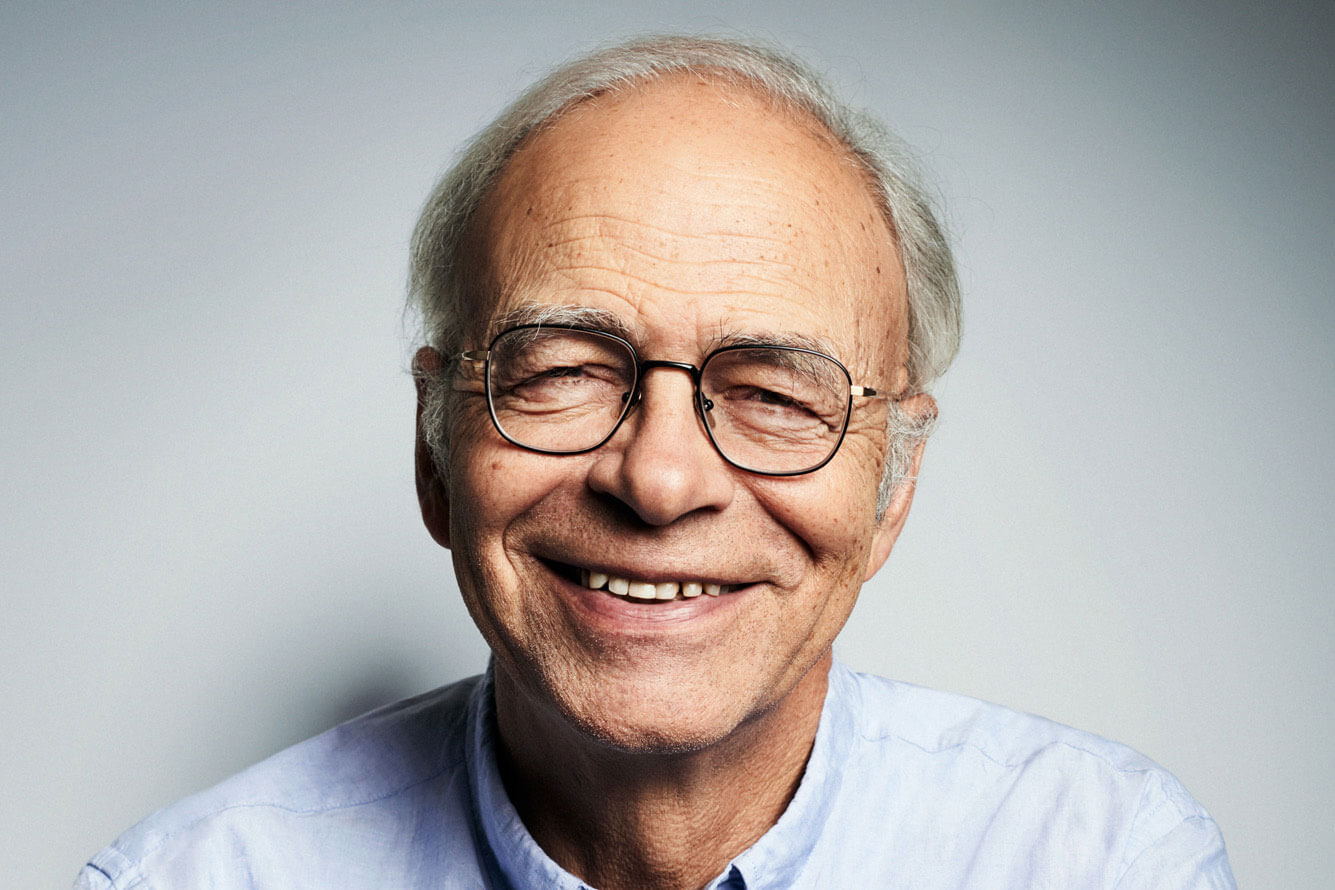Peter Singer is the Ira W. DeCamp Professor of Bioethics in the University Center for Human Values at Princeton University and Laureate Professor at the University of Melbourne. He is best known for his work on animal rights, but is also the co-founder of The Life You Can Save, an organization that aims to optimize the way charitable donations improve the lives of people living in extreme poverty. Here he talks to Michael Brooks about the complexities of our relationships with our fellow creatures
How did you first get turned on to the issue of animal rights?
It happened in 1970 when I was having lunch with a fellow graduate student after class at Oxford. He asked if there was meat in the spaghetti sauce and he was told there was, so he took the salad. I asked him about it afterwards, and he said he didn’t think animals ought to be treated the way they were to be turned into meat. I hadn’t ever thought about it very much, but I started to – and that led to me publishing Animal Liberation in 1975.
Do you think things are better now?
To a degree. We’ve made some progress in terms of how animals are kept, probably more in the European Union than anywhere else. But that progress has been pretty slow. I thought that, at the very minimum, people would read the book and just stop eating factory-farmed animals; for me it was such a clear argument. Obviously that didn’t happen. It seems that what you eat is something that’s very deeply habituated in us and really hard to change.
Could we improve the way we approach ethics?
I do think that people generally should learn ethics more formally, so they can appreciate and understand who they are in relation to the world around them. A lot of people assume that ethics is all just a matter of taste, or subjective feelings, or maybe it’s culturally relative. But there is a role that reasoned thinking plays in ethics; it’s not just a matter of taste. I think that’s important. Also, we need people to be more aware of the impact their daily life has on others, in terms of things like climate change treatment of animals, global poverty– it would be good for people to be stimulated to reflect more on those things.
Is it difficult for humans to relate to other animals in a rational way?
Obviously we relate to humans well: we understand them, we communicate with them in ways that are deeper and more complex than the way we communicate with other animals. The real problem is is that we have empathy for certain animals – companion animals like dogs and cats, or those who look more like us, such as primates – but we don’t have so much empathy with animals we’re eating. Pigs are every bit as smart as dogs, maybe smarter. If we really got to know them we would find that they have lives of their own to lead, and individual personalities and so on. But of course we don’t, so we just buy bits of them in supermarkets.
How much do recent studies of animal consciousness help?
There are limits to our knowledge of what’s going on in the minds of any conscious beings. But we should assume, if we’re dealing with a vertebrate animal, that it’s a conscious being who can suffer, and who has interests that should be taken into account. There is also pretty good evidence that the octopus is a conscious being, that it’s intelligent and can solve problems. I think there’s a lot more doubt once you get down to insects and crustacea. I would give them the benefit of the doubt where I can, but that doesn’t mean I allow ants to crawl over my kitchen, or mosquitos to bite me or anything like that.
What are you most proud of in your career so far?
I think writing Animal Liberation has to be number one. But I’m also proud of my work on effective altruism: there’s hundreds of millions of dollars that are being directed more effectively than they would have been. There’s still potential for it to make a much larger impact, of course.
What’s next for you?
I’m thinking about writing about population, which has been somewhat of a taboo topic recently but I think it’s still an important question. But I also have a role as a spokesperson for ideas and am able to reach a wide audience: I think that I should continue to use that where I can.
Photography by Alletta Vaandering




